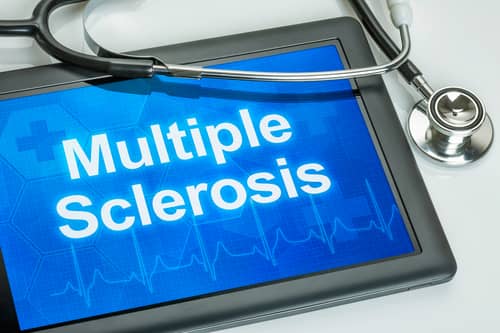Understanding Multiple Sclerosis
Multiple sclerosis (MS) involves an abnormal response of the body’s immune system,…

Multiple sclerosis (MS) involves an abnormal response of the body’s immune system, directed against the central nervous system (CNS) which is made up of the brain, spinal cord, and optic (eye) nerves. The exact nature of the disease process is unknown. Within the CNS, the immune system attacks myelin, the fatty substance that surrounds and insulates nerve fibers.
The damaged myelin forms scar tissue (sclerosis), which gives the disease its name. When the myelin and nerves are damaged or destroyed, signals from the brain and spinal cord to the rest of the body are distorted or interrupted, causing a large variety of symptoms.
It is thought that the disease is triggered by environmental factors, acting on an individual who carries a genetic tendency for the disease. If you have family members with multiple sclerosis, you are at greater risk of developing the disease than the general population.
Women are affected more than twice as often as men, and Caucasians more than any other race. It usually begins between the ages of 20 and 40. Someone with an autoimmune condition, such as thyroid disease or type 1 diabetes, has a slightly increased risk for MS.
Symptoms
Symptoms are variable and unpredictable. No two people have exactly the same symptoms. Some people have only one or two symptoms, some will experience many more. There are hundreds of symptoms which can be attributed to MS. Some of the more common are:
• Fatigue
• Numbness or tingling, especially in the arms and legs
• Weakness, especially in the legs
• Sexual problems
• Loss of bladder or bowel control
• Pain
• Emotional changes, especially depression
• Trouble with coordination and balance
• Thinking and memory problems
• Electric-shock sensations when moving the head a certain way
• Stiffness and involuntary muscle spasms, especially in the legs
• Vision problems, including double vision or blurry vision, partial color blindness, eye pain, partial or complete loss of vision in one eye
There is no one test to diagnose MS. Other diagnoses must be ruled out. The physician may order some tests. Blood tests may help rule out other autoimmune diseases.
A neurologist will look for changes in eye movements, muscle coordination, weakness, balance, sensation, speech, and reflexes. A spinal tap – fluid taken from the spine – may show proteins present with MS, and may help rule out other causes.
Magnetic Resonance Imaging (MRI) can show detailed images of the brain and spinal cord, showing lesions, but they are not always caused by MS.
Treatment
There’s no cure for MS. A combination of medicines, physical, speech and occupational therapies can relieve symptoms and help with emotional well-being, as well as slow the progression of the disease and maintain a good quality of life.
Some medications can help relieve certain symptoms and treat specific problems. Some can affect the long-term outcomes of the disease. Some people with mild symptoms choose not to take certain medicines because of the possibility of serious side effects. A detailed discussion of the medications is beyond the scope of this article.
Steroids may be used for flare-ups, in which affected nerves become inflamed, producing pain and loss of function. Steroids reduce inflammation, allowing return to normal function sooner. They do not treat the long-term outcomes of MS.
Physical therapy (PT) can help with walking, strength, balance, posture, fatigue and pain. PT can include stretching and strengthening, and training to use mobility aids like canes, scooters or wheelchairs.
Occupational therapy (OT) can improve the level of independence, and safety at home and at work. It includes training in tools to help daily life. The therapist can recommend changing the environment to simplify tasks. The therapist may help you to pursue activities and hobbies you enjoy.
Speech therapy is used for people whose speech and swallowing are affected by MS.
Nutrition is important to maintain or improve health. The diet should be low in fat and high in fiber. The goal is to keep the immune system strong.
It’s important to get enough exercise, but it’s also important to get enough rest. It may be necessary to adjust your work and home schedules to include time for rest.
Temperature can affect MS. Some people with MS are not affected by heat, but many are profoundly affected by hot weather, hot tubs, saunas, and hot baths or showers. Muscle weakness can become extreme with heat exposure.
Living with any chronic illness can be associated with loss of emotional well-being, affecting work, relationships, ability to exercise, ability to sleep well, and diet. It may be helpful to consult a therapist, both for the individual with MS and the family.
More information
National Multiple Sclerosis Society, PO Box 4527, New York, New York, 10163, (800) 344-4867 http://www.nationalmssociety.org
Multiple Sclerosis Foundation, 6520 North Andrews Avenue, Fort Lauderdale, Florida, 33309-2130 (954) 776-6805, http://www.msfocus.org
For more health tips and expert advice, join our free weekly newsletter and receive a Radiant Health Magazine Issue No.06 digital issue for FREE. Download Now.
